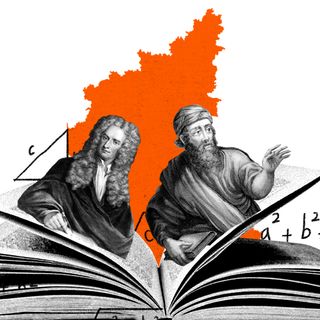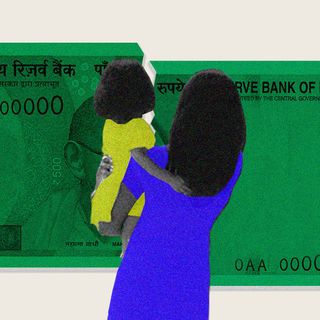
How Privilege Discourse Can Distort Social Justice
With many discussing how Anne Frank had white privilege and ‘Jojo Rabbit’ was anti-Semitic, talking about privilege has never been more fraught.

A strange bunch of ideas began making the rounds online over the last few days. A Twitter user observed that Anne Frank had white privilege, and another group of people began to sound the alarm on how Jojo Rabbit was supposedly an anti-Semitic, Nazi apologiafilm. It’s not so much the takes themselves, but the language used to articulate them that disturbed many: terms and ideas that are generally used to critique systems of power have now turned against their own, it would seem. It’s less a matter of social justice buzzwords coming full-circle so much as a snake that eats its own tail. How did we get here?
Privilege has been widely discussed in activist and academic circles, but never has it had more cultural currency than it does today. The idea is simple: privilege is a set of unearned advantages that help people gain access to systems, institutions, and power more easily than others. It was articulated most famously in 1988 in an essay called “White Privilege and Male Privilege: A Personal Account of Coming to See Correspondences Through Work in Women’s Studies,” by women’s studies scholar Peggy McIntosh, who went on to list 46 examples of what white privilege looks like.
“In order to understand the way privilege works, you have to be able to see patterns and systems in social life, but you also have to care about individual experiences… We’re all put ahead and behind by the circumstances of our birth. We all have a combination of both. And it changes minute by minute, depending on where we are, who we’re seeing, or what we’re required to do,” McIntosh told The New Yorker. In other words, understanding privilege is an exercise in locating individual experiences within broader systems.
Before McIntosh’s work, privilege — more specifically, white privilege — came to be understood as a governmentally sanctioned, consciously bestowed set of privileges to one race over others. With the Civil Rights movement in the United States leading to laws that made this explicit form of privilege illegal, the meaning began to shift toward the unconscious ways in which some people are always ahead of others.
McIntosh’s formulation of privilege is largely the one that evolved into what we know about the term today. Its relevance lay in the fact that it urged white people to think about race as something that they have and experience in a particular way, contrary to the notion that only people of color are the ones who need to grapple with their race. It also pulled people who benefit from systemic advantages into the conversation about how to dismantle racism and other forms of oppression — putting the onus on people with such advantages to question their own unearned benefits and work in solidarity with those without them.
Related on The Swaddle:
People With Privilege Tend to Think Welfare Policies Will ‘Harm’ Them, Shows Research
But over time, the idea became fuzzy and vague, overlapping heavily with what has come to be known as “white guilt” — or, in an Indian context, Savarna guilt. This is where people with privilege, rather than acknowledging it to dismantle systems of oppression, simply began to feel guilty for having been born with it — leading to a situation where they, rather than the marginalized, began to be centered in conversations about social justice. But more than that, privilege became diluted as a concept itself, misunderstood to apply to people in the form of check-boxes or a ledger that serves no inherent purpose. In other words, it allows people to understand how the world is unfair, but provides no roadmap for what we can do about it. It can also be ahistorical and, taken to an extreme, self-indulgent.
Some argue that the concept was flawed to begin with. “I believe her ‘ideas’ are not intended to change (or even analyze) the world at all; I believe they are intended to comfort the comfortable and to manipulate the emotions of those who are well meaning and self-critical,” wrote columnist Amber A’Lee Frost in The Baffler.
The fact that we are now discussing Anne Frank’s white privilege lends credence to this idea — that privilege was perhaps useful in some ways, but should never have been the one of the only mainstream tools to understand ourselves. It’s this dogmatic embrace of privilege, too, that led many to call out films like Jojo Rabbit as anti-Semitic — due to the fact that its approach to portraying Nazis was to ridicule them, which many considered to be undermining the scale of their violence. Many have also questioned director Taika Waititi’s credentials to direct this film — but in all this, there is little critical engagement with the film itself.
Moreover, privilege distorts the meaning of another framework to understand our place in the world: intersectionality. This idea, formulated in the 90s by lawyer and activist Kimberle Crenshaw, describes how individuals always lie at the intersection of various identities — and correspondingly, their experience of the world is shaped by that intersection. This helps us understand how privilege is not static: it shifts according to how, where, when, and with whom one moves in the world.
“We believe that sexual politics under patriarchy is as pervasive in Black women’s lives as are the politics of class and race. We also often find it difficult to separate race from class from sex oppression because in our lives they are most often experienced simultaneously,” the Combahee River Collective, a group of Black lesbian activists, noted in a famous statement. The text has been widely cited as an example of how intersectionality is political, deals with material realities, and necessarily requires solidarities across various groups.
On the other hand, the primacy of privilege discourse does the opposite: it focuses attention on the individual in a way that doesn’t adequately capture how systems of power work in complicated ways to, one way or another, harm all of us. In the wake of growing consciousness about white supremacy, casteism, and other forms of oppression, privilege has emerged as a tool that keeps powerful people at the center of social justice — which is ultimately counter-productive.
Rohitha Naraharisetty is a Senior Associate Editor at The Swaddle. She writes about the intersection of gender, caste, social movements, and pop culture. She can be found on Instagram at @rohitha_97 or on Twitter at @romimacaronii.
Related


How ‘Motherhood Penalty,’ Divorce Impact Single Mothers
